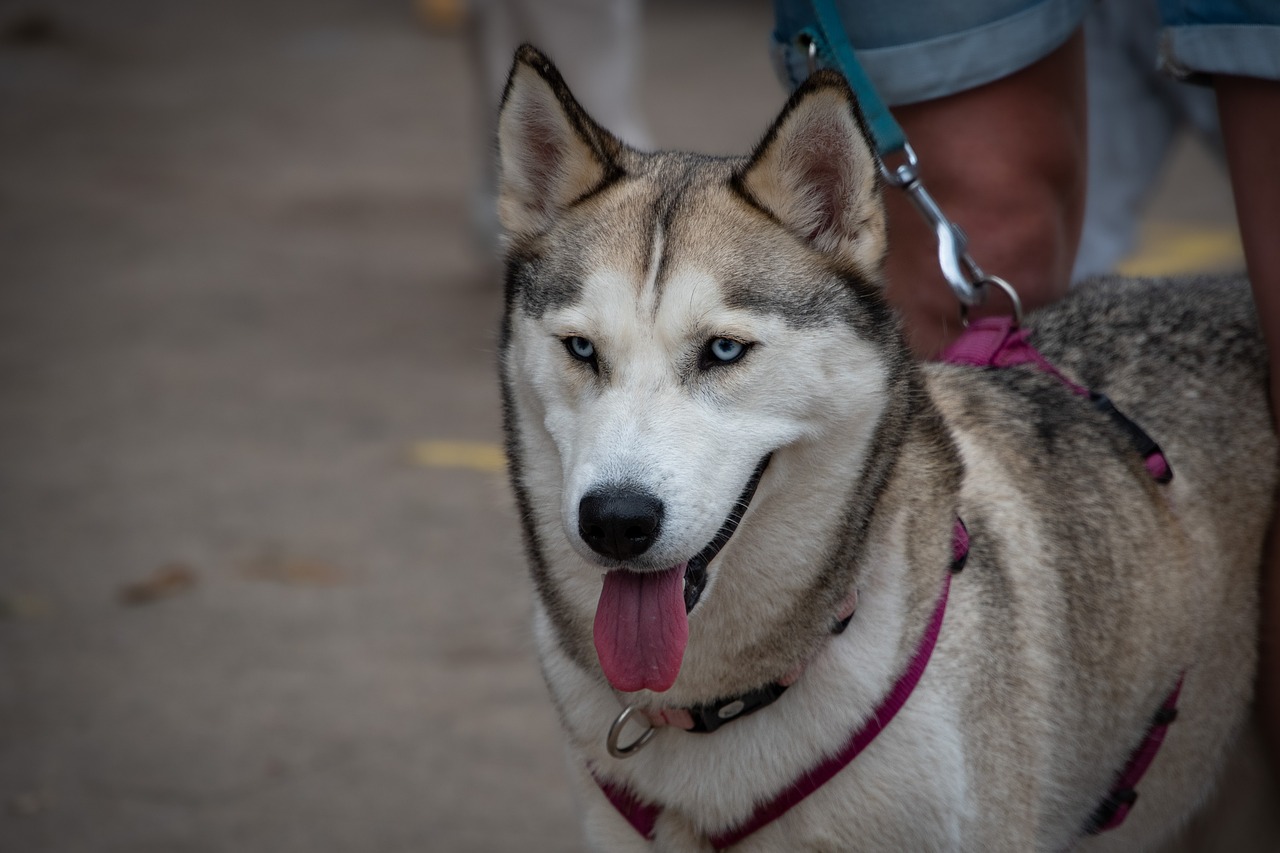Huskies, known for their striking appearance and association with cold climates, have long fascinated dog lovers. This article delves into the relationship between Huskies and cold weather, exploring their unique adaptations and guiding owners to ensure these dogs thrive in colder environments.
The Origin of Huskies and Cold Weather Adaptation
Huskies originate from regions with harsh, cold climates, such as Siberia. This history has equipped them with remarkable adaptations to cold weather. Their thick double coat, comprising a dense undercoat and a longer topcoat, provides insulation against frigid temperatures. Additionally, their almond-shaped eyes protect against wind and snow blindness, and their furry paws act as natural snow boots, offering warmth and traction on icy surfaces.
Understanding Huskies’ Cold Tolerance
Huskies’ cold tolerance is a key aspect of their breed characteristics. They can endure temperatures as low as -60 degrees Fahrenheit, a testament to their Arctic ancestry. This high cold tolerance is due to their efficient metabolism, which burns calories to generate body heat, and their unique fur structure that traps warmth. However, even with these natural defenses, owners must be vigilant about their Huskies’ exposure to extreme cold.
The Risk Factors for Huskies in Cold Weather
Despite their adaptations, Huskies are not impervious to cold-related risks. Prolonged exposure to extremely low temperatures, especially without proper shelter or nutrition, can lead to hypothermia or frostbite. Young, old, or sick Huskies are particularly vulnerable. Additionally, icy conditions can pose a risk of injuries from slips or falls.
Proper Care for Huskies in Winter
Caring for Huskies in winter involves several key practices. Providing a warm, dry shelter is crucial, even though Huskies can sleep outdoors in the cold. Their diet may need adjustments for increased caloric needs in colder temperatures. Regular exercise is important, but care should be taken to avoid overexertion in extreme cold, and owners should be aware of the signs of frostbite and hypothermia.
Nutritional Needs of Huskies in Cold Climates
In cold weather, Huskies require a diet rich in calories and nutrients to maintain energy and body heat. High-quality, protein-rich foods are essential, and some owners may opt for supplements to ensure their Huskies get enough vitamins and minerals. Proper hydration is also crucial, as Huskies can dehydrate in cold weather.
The Importance of Regular Health Checks
Regular veterinary check-ups are vital for Huskies, especially in colder climates. These checks help identify any health issues that might be exacerbated by cold weather, such as arthritis or respiratory problems. A vet can also provide tailored advice on keeping Huskies healthy during winter.
Exercise and Mental Stimulation for Huskies in Winter
Exercise and mental stimulation are essential for Huskies, regardless of the weather. In colder months, activities like sledding, hiking in the snow, and playing fetch can be enjoyable for them. However, it’s important to monitor their physical exertion and provide breaks to prevent overexertion in cold temperatures.
Recognizing and Responding to Cold-Related Issues in Huskies
Owners should know signs of cold-related issues like hypothermia and frostbite in Huskies. Symptoms include excessive shivering, lethargy, and pale or blue skin. Immediate action, such as providing warmth and consulting a veterinarian, is crucial if these signs are observed.
Huskies’ Social Needs During Winter
Huskies are social animals and benefit from interaction with their owners and other dogs, even in winter. Ensuring they have opportunities for socialization, whether through playdates or family interaction, is essential for their mental well-being.
Adapting Outdoor Spaces for Huskies in Cold Weather
Adapting outdoor spaces for Huskies in cold weather can enhance their safety and comfort. This includes providing insulated dog houses, ensuring the yard is free from hazardous ice and snow, and providing areas where they can play and exercise safely.
Conclusion: Balancing Huskies’ Love for Cold with Safety
In conclusion, while Huskies are well-adapted and generally safe in cold weather, responsible ownership involves recognizing their limits and providing appropriate care. By understanding their unique needs and taking proactive steps, owners can ensure that their Huskies survive and thrive in colder climates, enjoying the winter season to its fullest.

 Toledo, United States.
Toledo, United States.